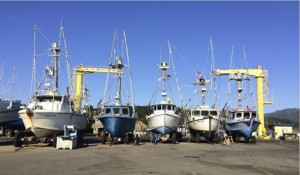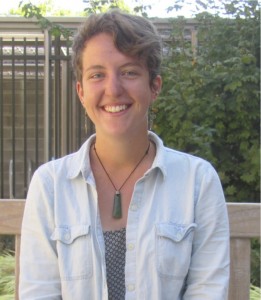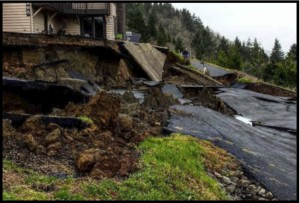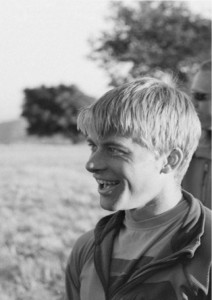By Victoria Binning, Umpqua NeighborWorks
What do you do with a team of passionate individuals who want to create a more robust food system, but don’t have any contacts in the industry they want to reform?
The Southwestern Oregon Food System Collaborative (SWOFSC) is nothing if not unconventional. They’re not a grassroots organization, but they’re working to create grassroots change. They don’t have fishing experience, but they’re on a mission to make a more robust fishing industry on the South Coast. Their goal is economic uplift in Coos, Curry, and Douglas counties, and they’re going to get there by providing a much needed boost to fishermen and seafood proce

ssors, the folks that anchor the South Coast economy, with time, resources, and connection.
Or at least, they aim to, once they meet some fishermen. That’s where I come in. As a RARE participant with SWOFSC, I’m the community builder. At the end of February, I’ll be hosting listening sessions, or what I like to call “Dockside Discussions”, with fishermen in port towns. This is an opportunity for fishermen to come together, air their grievances with the fishing industry, identify challenges, recognize strengths, and ultimately create a roadmap for what SWOFSC could tackle within the fishing industry that would have the greatest positive impact.
I will also get the chance to share some of the behind-the-scenes work that SWOFSC is doing. Our Dream$avers program for fishermen and farmers uses Oregon’s Tax Credit to match savings accounts at a rate of three to one. Our Business Investment funding opportunity offers entrepreneurs in the fishing industry up to $45,000 for business ideas that boost the South Coast fishing economy. In Port Orford, we’ll gear the conversation towards the Port’s new cannery building and the prospect of agritourism – or rather, piscatourism – that we have been encouraging the Port to incorporate into their plan. Ultimately, the goal is not only to inform ourselves about what SWOFSC can do for the South Coast, but to provide catalyst events and opportunities for people to meet other passionate people, get inspired, and create their own change.
I’m currently developing posters to promote the event and even this activity is an opportunity for tremendous connection to the community. You really never know what folks will tell you, from political opinions to impossible fishing stories. And you never know where you’ll find the tipping point in engaging the community, so we just keep trying.
So, when you have a team of passionate individuals who want to help, you have to connect them to the right people in the community – those with drive and inspiration – and the only way to find them is to get out there!
Victoria Binning
Victoria received her bachelor’s degree in Environmental Science with a minor in History from Willamette University. As a student, Victoria studied abroad in New Zealand and volunteered for the Centre for Sustainability: Agriculture, Food, Energy, Environment; through the Centre she worked to increase awareness of food insecurity in the community. After attaining her bachelor’s degree, Victoria served in AmeriCorps through the Oregon State Service Corps, working at the Marion-Polk Food Share to provide instruction for youth programs and cooking classes and to build the capacity of their programs. Now with RARE AmeriCorps – Resource Assistance for Rural Environments, Victoria plans to put her experience with food systems to work while critically analyzing and improving a local food system as a whole. After her year with RARE, Victoria aspires to complete a secondary degree in Environmental Management at Yale and using it to help her establish sustainable and thriving regional food systems.



